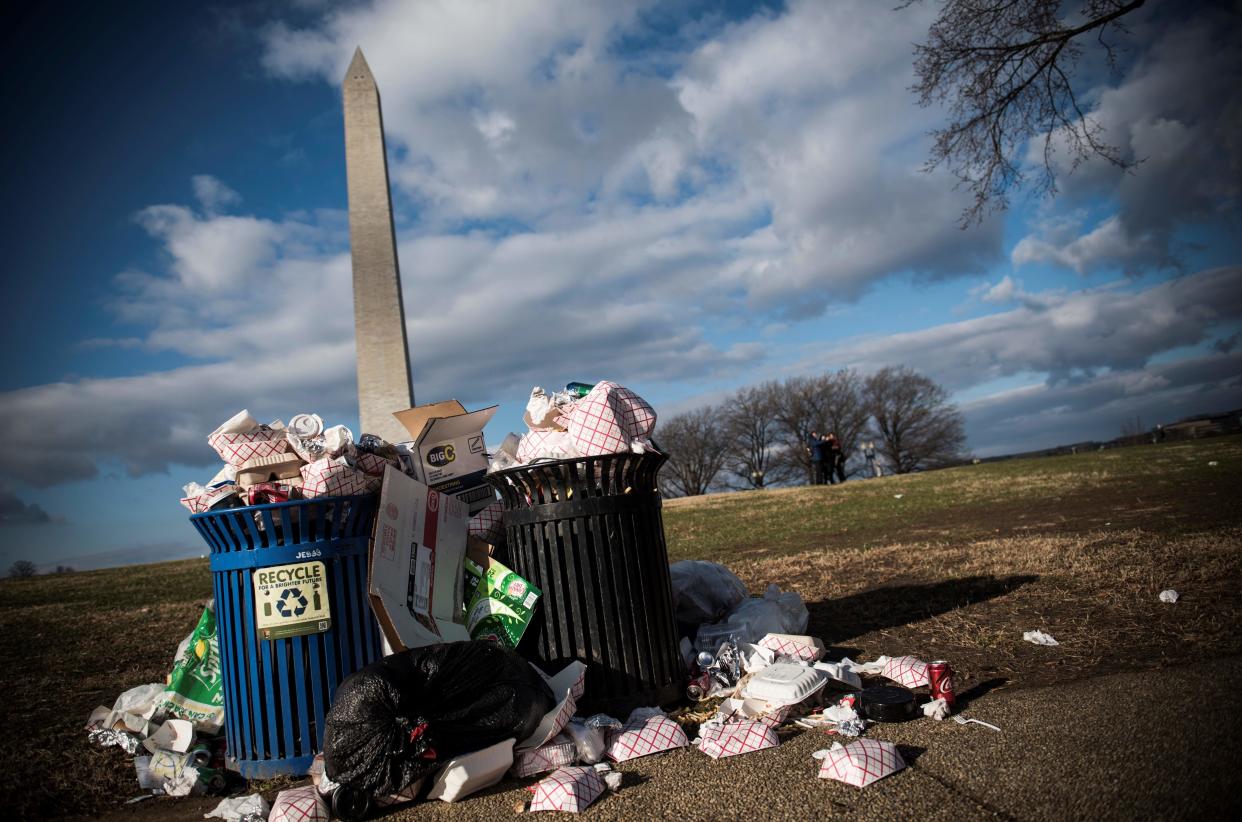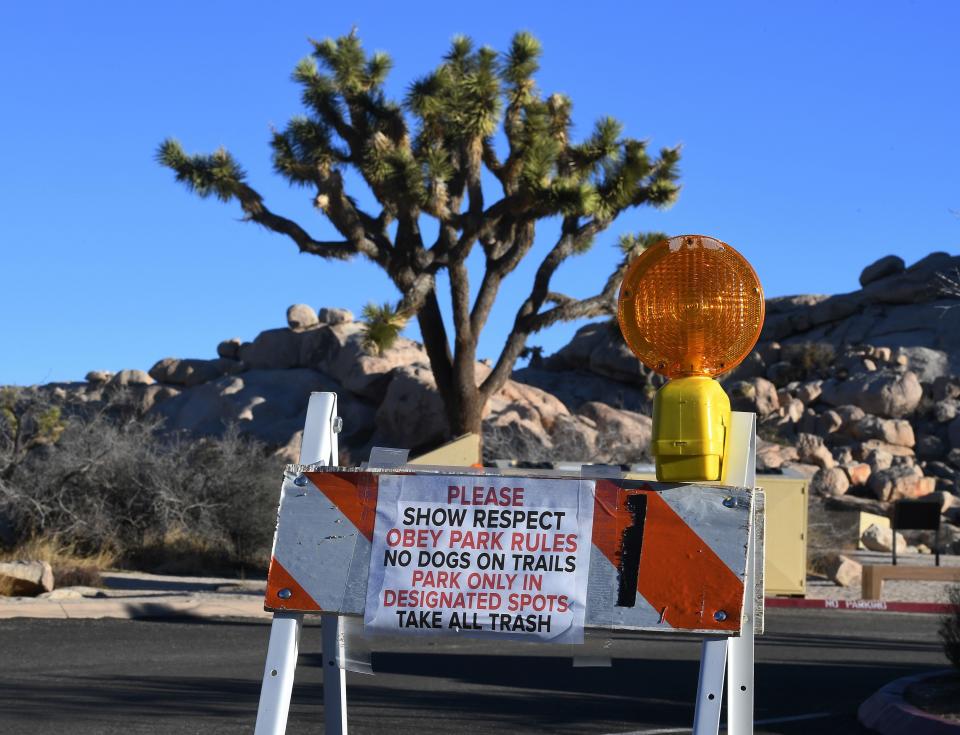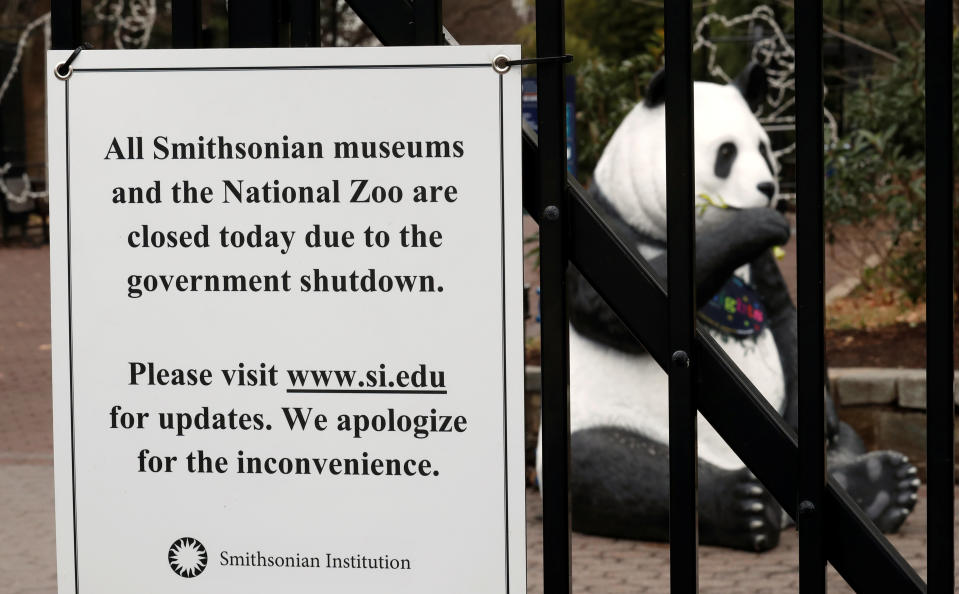The shutdown is about to get worse for federal workers

Nearly 800,000 workers have been off the federal payroll since the government shutdown began at midnight on Dec. 22. Their last checks, covering the middle two weeks of December, have went out and starting next week they will begin missing pay dates — potentially forcing them to put off bills or reduce expenses.
Four out of 10 Americans have less than $400 in the bank to cover emergencies.
While most workers received back pay after previous shutdowns, there’s no guarantee that will be the case this time around. Some contract workers, including janitors, security guards and administrative staff, won’t receive back pay at all. Congress has to pass — and the president has to sign — legislation that specifically authorizes the government to pay federal employees for the time they were on furlough.
Officials of unions representing federal workers are concerned about receiving makeup pay, citing President Trump’s recent decision to freeze scheduled salary raises via executive order. It’s even possible that essential personnel such as TSA agents and law enforcement officers, who are required to perform scheduled shifts to avoid losing their jobs, will not be paid for the hours they’ve worked during the shutdown.
“There’s not another company in the United States of America that could force employees to go to work and not guarantee them their pay,” said David Fitzpatrick, a representative for the American Federation of Government Employees (AFGE) union. “None. Zero. What company would you work for that said ‘Well, you’ll have to come to work, but there’s no guarantee we’ll pay you?’”
When asked during a press conference Friday about a safety net for federal workers losing pay, Trump said, “The safety net will be a strong border, because we’re going to be safe. I’m not talking about economically, but ultimately, economically, I really believe that these people … believe in what we’re doing.”
Fitzpatrick is personally stuck in limbo: He was supposed to retire from the National Park Service on Dec. 30, but with the shutdown, he’s been unable to file the necessary paperwork, so he’s not even sure he still is a federal employee. When he attempted to find out whether he could complete the process during the shutdown, the personnel officer he needed to speak with had also been furloughed.
As an unintended consequence of the shutdown, a pay freeze for top administration officials that had been in effect since 2013 expired — meaning that Cabinet officers, deputies and other top administrators will receive raises of around $10,000. CNN reported Friday that hundreds of TSA screeners are calling in sick at major airports, some to work other jobs that can pay them.

The shutdown is also an impediment to workers hoping to make ends meet with temporary jobs. Steve Reaves, the union president for Federal Emergency Management Agency, told Yahoo News that moonlighting in other contract gigs during the shutdown requires managerial approval. The problem is that most of the staff needed to approve those requests are also furloughed, and approvals are what he called “more miss than hit” at this point. Employees who perform unapproved contract work during the shutdown would risk dismissal.
Another possible problem for FEMA employees is the risk of missing bill payments, and receiving credit-score downgrades as a result. Reaves explained that many FEMA workers, most making $52,000 to $75,000 a year, have security clearances, which could be revoked if their credit scores fall. Reaves said the repeated shutdowns in recent years and the lack of job security have resulted in the loss of many FEMA employees, weakening the agency.
“We’ve lost a lot of excellent talent because of the frequent furloughs and the frequent threats of furloughs,” said Reaves. “When these big disasters do happen, the people we’ve spent years training and years building these relationships with in the state and municipality governments end up resigning and taking jobs with the municipality or private company, because there’s more security. We’re losing that talent that we’re spending years and years and millions of dollars training, and it makes us a weaker agency overall.”
He warned that the agency wouldn’t have the ability to deal with a natural disaster during the shutdown.
“They’ve kind of got a contingency plan, but overall, the response won’t be equal,” said Reaves. “Let’s say the big one hit right now and California fell into the ocean. There’d be no way FEMA could respond.”
The shutdown is affecting nearly every arm of the government, and 95 percent of NASA employees have been furloughed. That doesn’t mean any astronauts will be left adrift: The “excepted” employees include those who are “performing work essential to prevent imminent threats to human life or the protection of property,” according to a memo from the agency. This includes “tracking, operation, and support of the International Space Station (ISS).”

A number of museums in Washington, D.C., have now closed due to lack of funding. The National Zoo and Smithsonian museums used “prior-year funds” to stay open through the New Year but closed on Jan. 1. The National Gallery, which was using “unexpired two-year and no-year appropriations,” closed Thursday.
National parks have remained open, but certain areas are closed due to lack of staffing and overflowing toilets. At Joshua Tree National Park in California, campgrounds were shut down for “health and safety concerns as vault toilets reach capacity” while a sign urged visitors to "Pack out your trash. There are no trash services at this time." In Yosemite, a number of campgrounds and snow play areas are “closed due to human waste issues and lack of staffing.”
While the Department of Veterans Affairs, Medicare, Medicaid and Social Security is funded, nutritional programs could be reduced or eliminated at the local level if the shutdown continues. There are serious concerns on Native American reservations, where services provided by the federal government, ranging from clearing snow from roads to distributing food, are affected. The federal court system is set to run out of money on Jan. 11, at which point workers will begin to be sent home.
_____
Read more from Yahoo News:
Retired Gen. Allen says Trump turned troop visit into 'political rally'
Second migrant child's death in custody raises alarm for doctors as Nielsen tours border
Michael and his 3 parents: The first open adoption babies come of age
Trump says he could invoke emergency powers to build wall without Congress
PHOTOS: Partial government shutdown continues as Congress and president fail to reach deal


